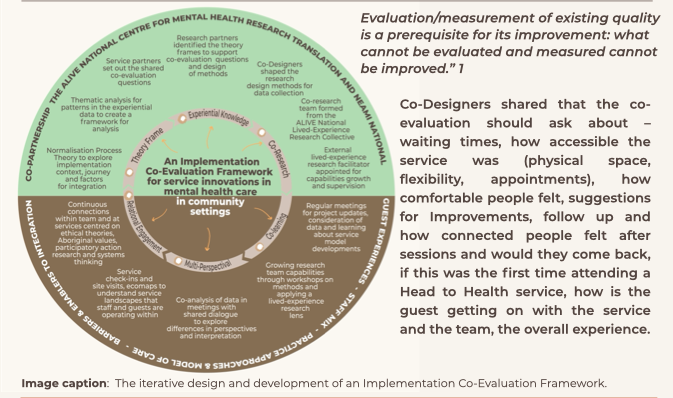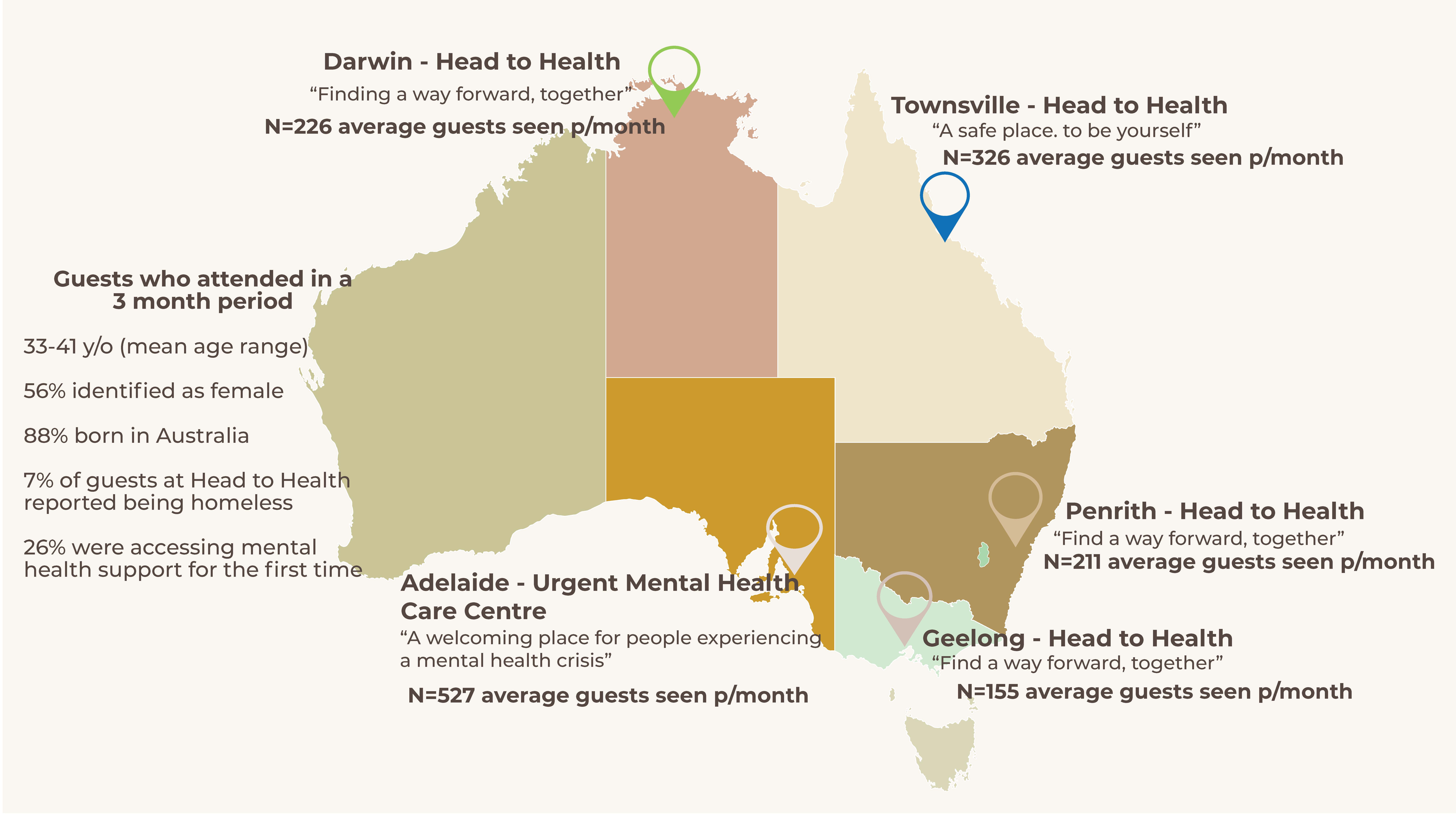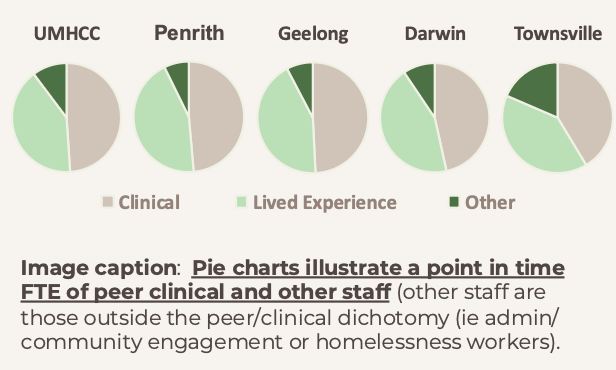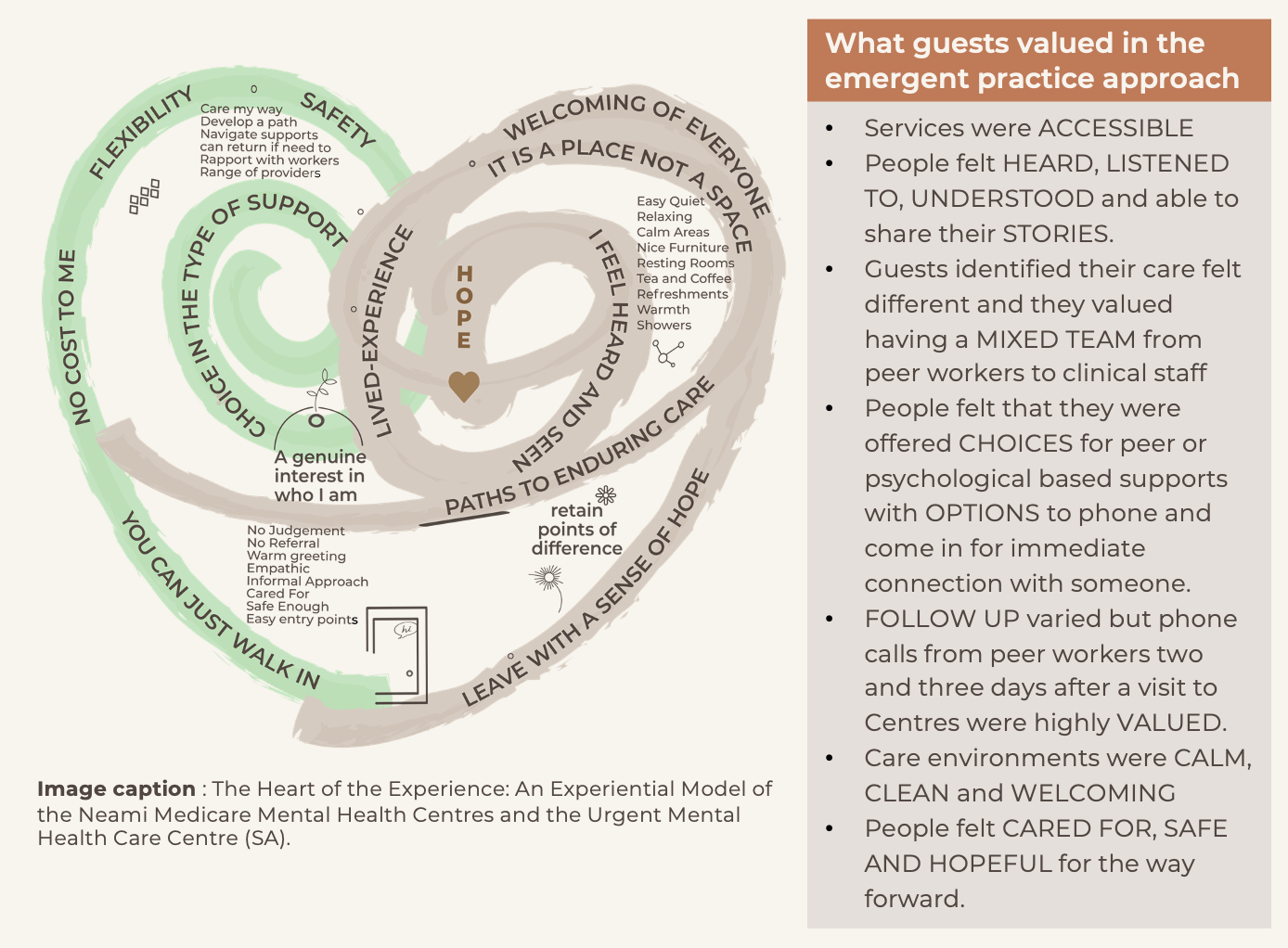Interested in our initiative? Submit your email to receive an invite to the alive collective.
Menu
Four new Medicare Mental Health Centres and an Urgent Mental Health Care Centre, were part of a service-research partnership in 2022-2024. The aim of the Co-Evaluation was to explore the implementation journeys of the first wave (pilot) of the Head to Health service innovations located in Darwin, Penrith, Townsville, Geelong and Adelaide (which included the Urgent Mental Health Care Centre to deliver an alternative to hospital care). Initially, the service model was to be a support for meeting the needs of people experiencing immediate distress and crises (called in the literature the missing middle) via a walk-in, referral and cost free, peer first and last, mixed multidisciplinary team approach delivered in a welcoming physical space.
In 2022 Neami National co-partnered with the ALIVE National Centre and funded this Implementation Co-Evaluation. The goal was to learn about the delivery the services, how staff were experiencing the new model, and who was accessing services and what the implementation strategies might be into the future. An intensive three-month period of data collection was conducted alongside mapping of communities, meeting service teams including peer and well being workers, and engaging with priority populations service staff and partners where possible. An embedded lived-experience research team was formed for a co-research approach and co-designers from the Co-Design Living Labs network assisted in project material design and development. Four Snapshots were produced to share what we learned across the sites. These are provided below and each one outlines:
The ALIVE National Implementation Co-Evaluation Team was interdisciplinary and across the priority populations research program, the co-design network, the lived-experience research collective, with service partner research team members and support from the ALIVE Hub.
Matthew Lewis, Michelle Banfield, Mark Loughhead, Jennifer Bibb, Phil Orcher, Hayley Purdon, Catherine O’Donnell, Ian Muchamore, Joshua Moorhouse, Anna Lampugnani, Pippa Featherstone, Dianna Smith, Melissa Petrakis, Konstancja Densley, Elise Dettmann, Caroline Tjung, Priscilla Ennals, Emily Castagnini, Victoria J Palmer.





ALIVE Next Generation Researcher Network Application Form Click here
For University based research higher degree students, early/mid-career mental health researchers
ALIVE Lived Experience Research Collective Application Form Click here
For University and community based lived-experience or carer-focused mental health researchers at all career stages
ALIVE Collective Application Form Click here
For any individuals or organisations with a general interest in supporting the special initiative in mental health
ALIVE Implementation and Translation Network (ITN) Application Form Click here
For sector, service delivery organisations in mental health serving people across the life course and priority populations
If you have a general enquiry about The Alive National Centre for Mental Health Research Translation, please submit an enquiry below